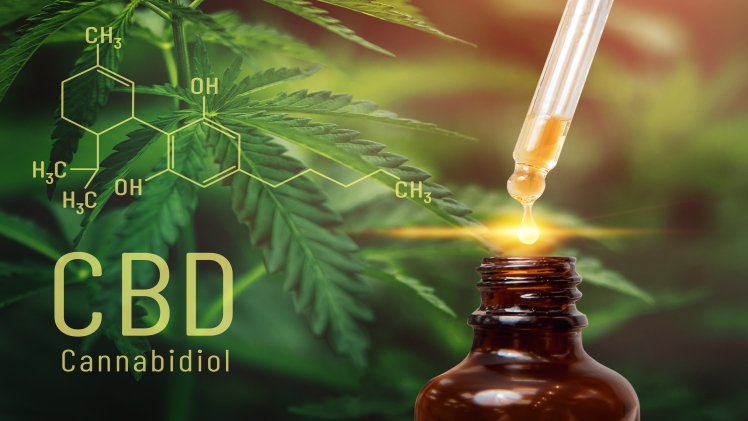Fast facts about CBD

Most people know about CBD, but there are many misconceptions about the cannabinoid. Here is a list of answers to common questions about CBD to impress your friends and family next time the topic comes up.
1. What is CBD?
The full name of CBD is cannabidoil. Cannabdnoil is one of more than a hundred active phytochemicals in the cannabis plant.
2. What is the difference between cannabis, marijuana, and hemp?
Both marijuana and hemp are cannabis plants and both contain CBD. They are two different species of cannabis. Marijuana contains more THC and hemp contains more CBD.
3. What is CBD oil?
CBD oil Canada is made by extracting CBD from cannabis plants grown on pristine farmlandand combining the extract with a carrier oil, such as olive oil or coconut oil.
4. How does CBD work?
CBD works through its interaction with the endocannabinoid system in the body. The endocannabinoid system and its endocannabinoids receptors are found throughout the bodies of all mammals: in the brain, organs, connective tissues, glands, and immune cells. CBD affects the body through its interaction with receptor CB1 and CB2 of the endocannabinoid system. click here for more info about Bulk Carrier Oils
5. Can CBD make you high?
No, CBD doesn’t bind to the body’s CB1 and CB2 receptors like THC does, so it can’t give you a high.
6. Does that mean CBD is not psychoactive?
No, it doesn’t. CBD is psychoactive. A drug that’s psychoactive affects how the brain works and causes changes in mood.People take CBD to reduce feelings of anxietyand depression.
7. Is it safe to take CBD products?
Yes it is, but you must be keep in mind that CBD interacts with some other medications and if you take them together, you might experience unwanted effects. Always talk to your doctor if you are on medication and want to try a CBD product.
HD movies download from Madrasrockers
8. Does CBD have any side effects?
Most people tolerate CBD very well. However, CBD can give you a dry mouth, diarrhea, reduce your appetite, or cause you to feel tired and drowsy.There is also concern that large doses of CBD could cause liver toxicity.
9. How much CBD is the right dosage?
That’s a very tricky question to answer. Scientists are not sure exactly how CBD works in the body and not enough research has been done for them to draw up safety guidelines. Your only option is to follow the manufacturer’s suggestion, but be conservative. The general rule is to start with a low dose, take notes on how your body responds to the CBD and then take it from there, slowly increasing your dose until you find a dosage that works for you.
10. What’s the deal with CBD oil and hemp oil? They’re the same, right?
No, they’re not, but many people confuse the two because they are both made from the hemp plant. The difference is in the parts of the plants that are used to create the oil. CBD oil is made from the dried leaves and flowers of hemp, while hemp oil or hemp seed oil is made from the seed of the hemp plant. Manufacturers can extract CBD from the flowers and leaves, but the seeds have no CBD.
11. Is CBD legal?
Yes, but only if it is derived from industrial hemp and contains less than 0.3% THC, according to the government’s approval of the 2018 Farm Bill, CBD. Technically, CBD that contains more than 0.3%would be regarded as a Schedule 1 drug.
12. Is CBD a cure for any health condition?
No, it’s not – not according to research thus far. However, the list of conditions it could possibly affect is very long. CBD interacts with the endocannabinoid system (ECS), which is a system of cell receptor proteins spread throughout the body, responsible for a vast range of functions, including immune function, reproduction, pain perception, appetite, sleep,mood, memory, motor control, bone development, and more. Because CBD can affect the ECS, it could potentially affect many conditions in the body.CBD could potentially help with more than 50 health conditions.
13. Are there any conditions that CBD is currently being used for?
Yes, the FDA has approvedEpidiolex to treat seizures associated with Lennox-Gastaut syndrome (LGS), Dravet syndrome, or tuberous sclerosis complex for patients one year and older.
14. What’s the deal with the different spectrum CBD oils?
CBD oil comes in full-spectrum, broad-spectrum, or isolate forms. Full-spectrum CBD retains the full range of cannabinoids and terpenes in the marijuana plant, including THC. Broad-spectrum CBD also includes a full range of terpenes and cannabinoids, but not THC. CBD isolate is the purest form of CBD. It’s what remains when all the other compounds have been removed.
15. What is the best way to take CBD?
You get the quickest results from sublingual products like CBD tinctures that come in small, dark bottles. You drop the CBD oil under your tongue, where there are many blood vessels that can take the CBD to the bloodstream. The bioavailability of CBD taken this way is also the best, since it doesn’t have to pass through the digestive system before it gets into the bloodstream.
16. What about smoking or vaping CBD?
The bioavailability of CBD ingested in this way is also good, but keep in mind that smoking is risky for your lungs.
17. Can I give CBD to my pets?
Yes, many dog and cat owners are using CBD oil for various conditions, including separation anxiety, pain and inflammation, epilepsy, weight issues and skin conditions. There’s a vast range of quality CBD products for pets on the market.
18. Is CBD a new thing?
No, cannabis has been around for thousands of years. Cannabis, with all its cannabinoids, including CBD, has been used as a herbal medicine for centuries in many cultures, from Egypt and Europe to China and Japan.




